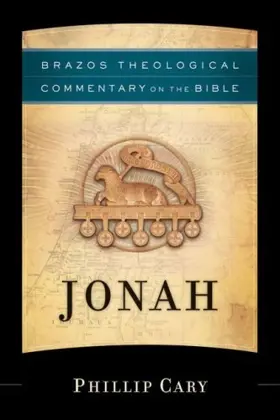

Jonah
in Brazos Theological Commentary on the Bible
Pages
192 pages
Publisher
Brazos Press
Published
10/15/2008
ISBN-13
9781587431371
Reviews
This is a wonderful commentary
Philip Cary’s commentary on the book of Jonah combines profound exegesis with original insights that could serve both the biblical scholar and the layperson. This follows the overall vision of the Brazos commentaries, as R. R. Reno puts it in the series preface: “the commentators in this series have not been chosen because of their historical or philosophical experience.… they are not biblical scholars in the conventional … sense.… Instead, the commentators were chosen because of their knowledge of and expertise in using the Christian doctrinal tradition. They are qualified by virtue of the doctrinal formation of their mental habits” (12). The commentary provides a detailed analysis of each verse, which is indicated both in the text itself and at the top of each page for easier reference. Cary utilizes his own modified combination of the King James Version, Revised Standard Version, New American Standard Version, and the English Standard Version. At the end of the commentary is an epilogue (163–74) with some observations which could be useful for a dialogue between Judaism and Christianity. This is followed by both subject (175–80) and scripture (181–87) indices.
[Full Review]
After reading Sasson, this book is wonderfully full of life. Like the book of Jonah, it delights and challenges at the same time. It questions and probes and makes you think. While it is easy to read, it is not so easy to grasp. I found myself having to reread many sections. And when done, I wanted to start again to think this all through some more. At times you wish he would explain more – but perhaps the leaving the reader to have to work through the thoughts he started you on is the strength of this commentary. One might say that to completely explain everything would ruin the joke. As if when one got Jonah figured out they could safely leave him behind. (I wrote that while getting near to finishing reading the commentary only to find out his last chapter essentially said his purpose was just that!) While the commentary's strength is getting you to wrestle with text and examine yourself and you own assumptions, I did not find it did so well at placing the text in original setting (he believes that the book of Jonah was originally for returning exiles) and I did disagree with some of his interpretive decisions. Or at least I should say I am not yet convinced by his views. I do not agree with his premise that Jonah is lying in chapter 4 when he gives his reason for not going to Nineveh at first. Cary believes it was simply fear that made him run. And though a strength is letting lots of old testament allusions and symbols enlighten the text, at times he might go to far. I am not yet convinced the gourd represents the David line or the “tent” represents Jerusalem. I hope to do more study and find some commentaries better suited to help me think through those things. But I am thankful for this commentary's contribution to the study of Jonah.
One other note. It seems that Cary reads the text as a literary satire while not ignoring or discounting it may be rooted in historical events. I first was introduced to reading Jonah as comic satire by a chapter in the book, “And God Created Laughter, the Bible as Divine Comedy” by Conrad Hyers. I found the chapter online (whether legally or illegally or not I do not know). But one can also read much of that chapter from Google Books. It is very helpful.

